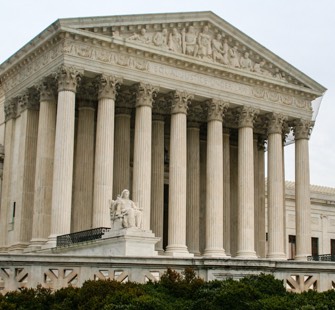 During patent examination, pending patent claims are given the broadest reasonable interpretation (“BRI”) that is consistent with the specification, as would be understood by one of ordinary skill in the art. See Phillips v. AWH Corp., 415 F.3d 1303, 1316 (Fed. Cir. 2005).
During patent examination, pending patent claims are given the broadest reasonable interpretation (“BRI”) that is consistent with the specification, as would be understood by one of ordinary skill in the art. See Phillips v. AWH Corp., 415 F.3d 1303, 1316 (Fed. Cir. 2005).
The Patent Office applies the broadest reasonable interpretation in virtually all circumstances. It is, however, true that at least one situation where the Patent Office does not use broadest reasonable interpretation is when a reexamination of a patent is undertaken and reexamination will not be concluded until after the patent term has expired. The position of the USPTO is that, in this situation, a patent could not be changed because the term has expired; therefore, the only remaining “life” a patent has would be in litigation because the statute of limitations for a patent infringement action is six years. Thus, the USPTO applies the Phillips standard. (Further discussion of this advanced topic goes beyond the scope of this article, which is intended to be a primer on the broadest reasonable interpretation standard.)
Whether the Patent Trial and Appeal Board (PTAB) should be using the broadest reasonable interpretation when it reconsiders previously issued patents in post-grant proceedings will soon be considered by the United States Supreme Court.
As the patent examiner walks through the novelty and obviousness analysis, the broadest reasonable interpretation standard is applied. If a patent claim would capture something that is in the prior art, then the claim is said to be anticipated (i.e., not novel). If the patent claim would capture a routine combination of prior art elements, the the claim would be obvious. While deciding whether the claim would capture the prior art as written, the examiner gives the patent claim the most expansive reading consistent with the disclosure of the invention in the patent application.
It is also important to note that the broadest reasonable interpretation does not mean the broadest possible interpretation. Rather, under the broadest reasonable interpretation standard, the meaning given to a term used in a patent claim must ordinarily be consistent with the ordinary and customary meaning of the term, unless of course the patent applicant chose to act as their own lexicographer and provide a specific definition, which would then govern.
The broadest reasonable interpretation has become contentious. We await the Supreme Court weighing in on the subject. Patent claims in issued patents are not given the broadest reasonable interpretation during federal court proceedings involving patent infringement and patent validity. Thus, the Patent Office does not interpret claims in the same manner as the federal courts.
Applying a different standard, namely the broadest reasonable interpretation standard, makes sense prior to the issuance of a patent because the patent applicant has the opportunity to amend the claims during prosecution. Giving a claim its broadest reasonable interpretation reduces the possibility that the claim, once issued, will be interpreted more broadly than is justified, thereby reducing the likelihood that a claim will be viewed as covering the prior art.
The rationale for the Patent Office applying broadest reasonable interpretation to review previously issued patents in post-grant proceedings, which are alternatives to federal court litigation, does not make a lot of sense given that patents are statutorily supposed to be presumed valid. See 35 U.S.C. 282. Furthermore, although the statute says that patent owners have a right to file a motion to amend patent claims during post-grant proceedings, see e.g. 35 U.S.C. 316(d), the PTAB almost never allows the amendment of claims in these proceedings.
We will know soon enough. The Supreme Court decision is expected by the end of June 2016.
Tags: BRI, broadest reasonable interpretation, Inter Partes Review, IPR, patent, patent trial and appeal board, patents, Phillips standard, PTAB, SCOTUS, Supreme Court




You share in the PLI Practice Center community, so we just ask that you keep things civil. Leave out the personal attacks. Do not use profanity, ethnic or racial slurs, or take shots at anyone's sexual orientation or religion. If you can't be nice, we reserve the right to remove your material and ban users who violate our Terms of Service.